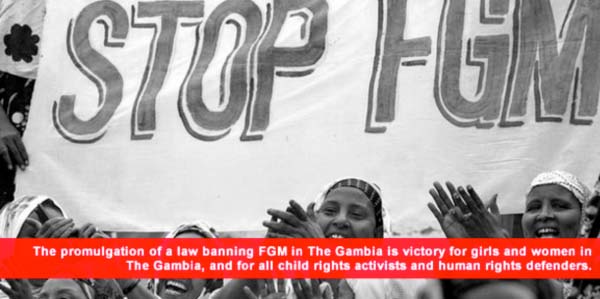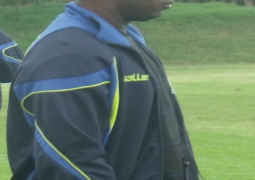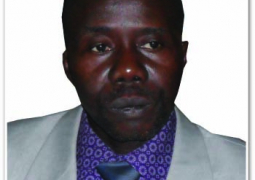
Isatou
Jeng was never told why she was taken under the knife but as she grows to
maturity, to womanhood, she realised that she is without a clitoris.
“When
I realised that my clitoris was missing, the only explanation I got was ‘we did
it to purify and protect you as a woman’,” she said as she narrated her story
of being a survivor of Female Genital Mutilation (FGM).
The
young woman said the trauma of going through FGM multiplies when she needs the
missing organs the most but not available to perform its functions.
The
story of Isatou is not an isolated case. According to a 2013 report, an
estimated 76.3 per cent of girls and women have been subjected to FGM and are
living with its trauma and physical consequences.
This
statistics, though among the highest in Africa, is a result of more than 30
years of campaign of demystifying FGM and delinking it to Islam.
The
initial sign of the success of the campaign was not visible in terms of numbers
but by making FGM a household topic of discussion; initially it was a taboo
that no one dares talk about or challenge.
But
the campaigners, undeterred and undiscouraged by the modest statistical
achievement, continued the advocacy until eventually, they got the political
commitment of the government of Yahya Jammeh, the former president.
Barely
two months after Jammeh’s declaration to abandon FGM, the National Assembly in
December 2015 promulgated a law ‘to prohibit female circumcision due to the
proven harmful nature of the practice’.
The
legislation has created an enabling environment for the advocates to take an
active role in protecting women and girls and increased community awareness of
FGM’s harmful impacts.
But
as the world celebrates the International Day of Zero Tolerance to FGM today,
Monday, anti-FGM activists in The Gambia said the new government should do
more, not just be complacent with the fact there is already a law against the
practice in the country.
Activist
said the passage of the law was the beginning of the Gambia’s commitment to
have zero tolerance to the practice.
Njundu
Drammeh, coordinator of Child Protection Alliance (CPA), said enforcing the law
is what is needed now; the new government should make sure that the law is
fully enforced to make it meaningful.
Advocates,
he said, should also continue to popularise the law by sensitising people of
its existence particularly on days like the International Day of Zero Tolerance
to FGM.
He
said anti-FGM stakeholders should continue to work together to disabuse the
minds of the parents and communities by helping them to unlearn all the things
associated to it.
Mr
Drammeh also pointed out that circumcisers should be economically supported so
they are able to stop the practice.
From
2007 to 2013, a total of 128 circumcisers from 900 communities have abandoned
the knife, decisions that were all publicly declared in ‘Dropping of the Knife’
celebrations courtesy of Gamcotrap, a local women’s rights NGO.
These
women do not just have prestige on circumcision but also money. Mr Drammeh said sensitising them to drop the
knife is not enough they need to know have an alternative source of livelihood.
FGM
board needed
Lisa
Camara, coordinator of Safe Hands for Girls, said the new government should put
in place more policies, and set up an FGM board that will oversee the
enforcement of the law and the implementation of the policies so as to make The
Gambia FGM free.
She
said a lot of people in the country, especially in the provinces, do not know
who to report to, and how to report issues of FGM.
Ms
Camara said Safe Hands for Girls, through the help of The Guardian, would
continue working with the media to amplifying voices on FGM.
She
said her organisation would celebrate the international anti-FGM day next month
using art and music to send out FGM messages that could be communicated.
Safe
Hands continue to embark on ways and means of sensitising people about FGM
because for them, using the law to punish the people is a non-starter.
“The
more information, the less we come across FGM cases,” Ms Camara said.
For
Fatoumata Touray of the Gambia Committee of Traditional Practices (GAMCOTRAP),
there should be vigilante groups set up in the communities to monitor those
communities that are still practicing FGM.
“These
groups will be capacitised to serve as FGM watchdogs for civil society
organisations,” she said.
“They
will raise the alarm whenever a particular community is about to practice FGM
so that early intervention can be done to safe the lives of the innocent girls
instead of just punishing the perpetrators after the damage is done on girls
already.”
As
Isatou, the FGM survivor, is now a matured lady, she has joined the campaign
against FGM so that she can help make sure that innocent girls are speared of
the trauma she is living with as a result of FGM.
“I
am also calling on the government of President Adama Barrow to show more
commitment by making FGM a top priority in its drive to promote and protect the
rights and welfare of women,” she said.



